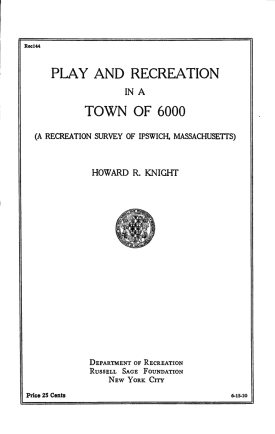The National Academies of Sciences, Engineering and Medicine (NAS) is conducting a study of child poverty to “provide an evidence-based, non-partisan analysis of the macroeconomic, health, and crime/social costs of child poverty, to study current efforts aimed at reducing poverty, and to propose recommendations with the goal of reducing the number of children living in poverty in the United States by half in 10 years.” This effort is led by a distinguished group of scholars, including several RSF authors, former visiting scholars and grantees.
Co-funded with the Ford Foundation
A dominant belief in the U.S. is that social mobility is attainable for anyone through increased education, dedication, and hard work. Applying oneself in this manner is assumed to lead to positive life outcomes such as better earnings, employment and health. Yet, recent evidence suggests that upward mobility might compromise the health outcomes of members of marginalized groups.
In 2017, Attorney General Jeff Sessions reversed Obama-era criminal justice priorities that aimed to mitigate the racial disparities of the federal “war on drugs.” Sessions’s changes now require prosecutors to aggressively pursue drug, gun, and immigration cases. Social psychologist and criminologist Mona Lynch will examine the impact of the changing prosecutorial policies.
About This Book
Reprinted from the Independent of August 20, 1908, this paper, written by the originator of the whole juvenile court system of the United States, calls for the establishment of playgrounds and juvenile courts around the country in order to combat the increase in crime among youth at the time.
BEN B. LINDSEY presided over the Juvenile Court of Denver, Col.
Download
RSF Journal
View Book Series
Sign Up For Our Mailing List
Apply For Funding
About This Book
From the Playground Extension Committee of the Russell Sage Foundation, this paper explores a variety of games for children in the winter months.
ARTHUR LELAND, Playground Extension Committee, Russell Sage Foundation
Download
RSF Journal
View Book Series
Sign Up For Our Mailing List
Apply For Funding
About This Book
A recreation survey of Ipswich, Massachusetts, based on direct observation of children’s outdoor play and interviews with the children. Its purpose was to determine what the schools of the Ipswich community might do to meet the recreation needs of the community.
HOWARD R. KNIGHT, Department of Recreation, Russell Sage Foundation
Download
RSF Journal
View Book Series
Sign Up For Our Mailing List
Apply For Funding
About This Book
This 1908 pamphlet, from the Playground Extension Committee of the Russell Sage Foundation, examines the benefits specific to young girls of recreational spaces for their proper mental and physical development.
BEULAH KENNARD was president of the Playground Association of Pittsburg, Pa.
Download
RSF Journal
View Book Series
Sign Up For Our Mailing List
Apply For Funding
About This Book
This 1909 paper from the Playground Extension Committee of the Russell Sage Foundation outlines the reasons for recreation: that it encourages mental control over motor skills, physical development and conditioning, and even the growth moral and social qualities like respect and sympathy in children.
GEORGE E. JOHNSON was director of the Pittsburgh Playground Association.
Download
RSF Journal
View Book Series
Sign Up For Our Mailing List
Apply For Funding
About This Book
An address to the Annual Playground Association of America regarding the benefits of public recreation spaces from a physician’s point of view, from the Playground Extension Committee of the Russell Sage Foundation.
WOODS HUTCHINSON was the Oregon State Health Officer and professor of clinical medicine at the New York Polyclinic.
Download
RSF Journal
View Book Series
Sign Up For Our Mailing List
Apply For Funding
About This Book
From the Annals of the American Academy of Political and Social Science, this paper argues for the importance of play in education, with data on public recreation centers in New York City.
LUTHER H. GULICK was director of the Department of Child Hygiene at the Russell Sage Foundation.
Download
RSF Journal
View Book Series
Sign Up For Our Mailing List
Apply For Funding
Pagination
- Previous page
- Page 17
- Next page

